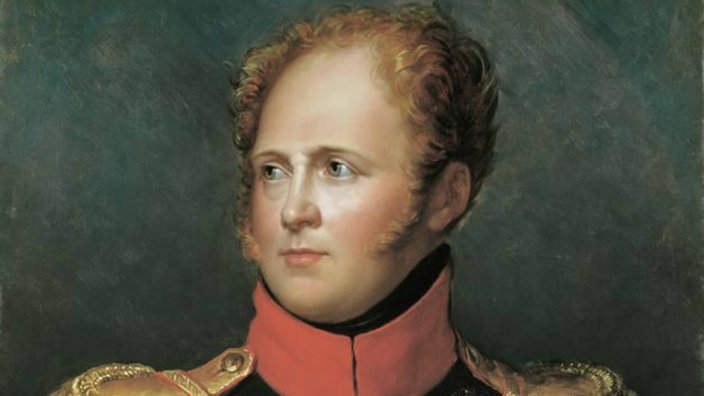Thanks to him, Europe formed a "holy alliance": who is Alexander I (Pavlovich)
The tsar who entered Paris as the head of the army in March 1814 was Alexander I.

(1777 – 1825) Russian tsar. He was instrumental in the formation of the "Holy Alliance" among European states. He was born on December 23, 1777, and died on November 19, 1825. He is the eldest son of Tsar Pavel I. He was raised by his grandmother, Tsarina Catherine II. Influenced by his teacher, the Swiss Cesar La Harpe, he inclined towards Enlightenment thought. He married Princess Louise of Baden in 1793. He ascended the throne after the murder of his father, Pavel I, in 1801.
Alexander I (23 December [O.S. 12 December] 1777 – 1 December [O.S. 19 November] 1825) was the emperor of Russia from 1801, the first king of Congress Poland from 1815, and the grand duke of Finland from 1809 to his death in 1825. He was the eldest son of Emperor Paul I and Sophie Dorothea of Württemberg.
The time he came to power was during the burgeoning period of liberalism in Russia. Some of the nobles saw their existence in line with liberalism. Although Alexander I held conservative views, he initially favored liberal transformations, even the constitutional order. Alexander I, who held the former rulers in place for a while, later established a special committee consisting of Prince Adam Czartoriski, Count Pavel Stroganov, Count Nikolay Novosiltsev, and Count Viktor Koçubey, who came from noble families and were influenced by liberal views. The purpose of the committee was to make “new laws for the good of the country”. These liberal efforts lasted until the War of 1812. Alexander made some administrative reforms with his advisers. He prepared a plan for non-formal education. But he did not attempt to abolish slavery. However, he had previously described slavery as "a disgrace and misfortune for the country".
Before the Franco-Russian war of 1812, there was a struggle for world domination between England and France, where the revolution had just happened. Alexander I established friendly relations with England. He joined the alliances formed against Napoleon. However, the Russian and Austrian armies were defeated by Napoleon's armies at Austerlitz. Then, dissolving the Prussian armies, Napoleon reached the borders of Russia; but knowing that he could not succeed against England without making an agreement with Russia, he offered peace to Alexander I. Peace was signed in June 1807. Alexander severed ties with England, temporarily becoming Napoleon's ally.
After the peace treaty signed at Tilsit in 1807, Alexander allowed some reforms to be made in Russia. These reforms aimed at soft social transformations that protected the feudal social order and absolutism in the face of the revolutionary shocks caused by the influence of Europe. Among these were legal reforms, some of which could only be implemented, the establishment of the State Duma as a representative body, and the establishment of elected local governments.
These plans, approved by Alexander I, caused discontent among the nobility. Under the influence of noble dissidents, Alexander I exiled Speranski, who had proposed this plan. Alexander I was the head of the Russian armies at the beginning of the war of 1812. On June 24, 1812, when Napoleon entered the borders of Russia, the events that developed showed that the tsar was incapable of directing the military operation. Leaving the management of the army to Kutuzov with various pressures, Alexander I went to Petrograd and remained there until the end of the war. After the complete expulsion of Napoleonic troops from Russia, he entered into new alliances against France. He participated in the campaigns of 1813-1814, which resulted in the defeat of the Napoleonic armies. In March 1814 he entered Paris at the head of the Allied armies.
At the Congress of Vienna in 1814-1815, with the participation of Alexander I, a new structure was given to post-war Europe. Poland joined Russia. After Alexander declared himself king of Poland, he had a new constitution drawn up for this country. In September 1815, at the suggestion of Alexander I, the "Holy Alliance" was formed between the European states. The purpose of this union was to unite the forces of feudalism and absolutist powers in Europe against movements toward social change.
During the last decade of his tsarism, many uprisings broke out in Russia. It was in this environment that the Dekabrists movement emerged, led by representatives of the noble class. Alexander, I opposed the liberalization tendencies in domestic politics and harshly suppressed the slightest movement against serfdom. During the tsarism of Alexander I, Russia's territory expanded significantly. In 1801, Georgia joined, and in 1809, Finland became part of Russia as a result of the Russo-Swedish war. Bessarabia and Azerbaijan passed into the hands of Russia as a result of wars with the Ottoman Empire and Iran in 1806-1812.
Alexander, I pursued a colonial policy against the people living in these countries. In his youth, under the influence of contradictory liberal and conservative ideas, Alexander became more and more conservative. After the signing of the holy alliance, he became the most powerful representative of monarchical despotism in Europe.
